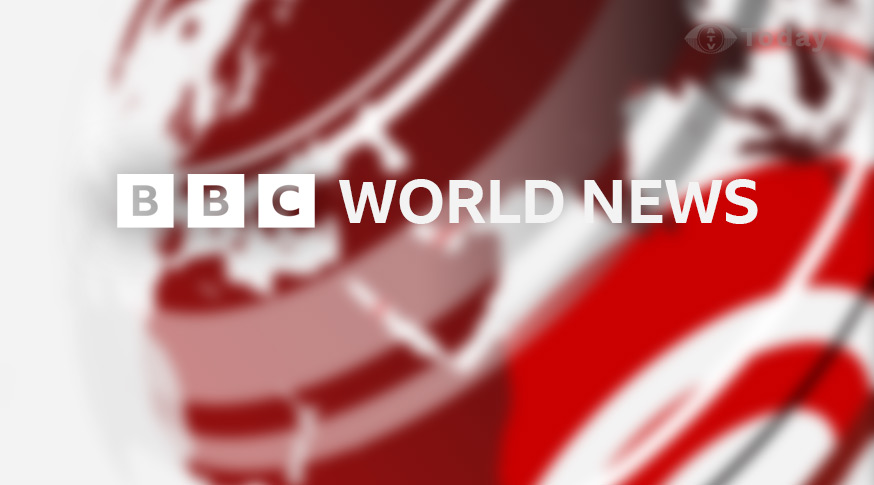A BBC World Service investigation unit, BBC Eye, has revealed that nearly 20,000 Ukrainian men have used various routes to flee their country to avoid being drafted, following Russia’s full-scale invasion of Ukraine.
The BBC Eye investigation, Ukraine’s Draft Dodgers, talks to some of the men who have escaped the war, as they explain their unique situations, their choices, and what they have gone through to get out of Ukraine and claim asylum in its neighbouring countries. BBC Eye’s covert reporting identifies smugglers whose paid services are advertised on a messaging app.
After Russia’s invasion of Ukraine in February 2022, Ukrainian men aged 18-60 were banned from leaving the country unless they had an exemption. But BBC Eye has established – by requesting from Romania, Moldova, Poland, Hungary and Slovakia data on illegal border crossings – that 19,740 men illegally crossed Ukraine’s border into these neighbouring countries between February 2022 and 31 August 2023.
According to the Ukrainian authorities, out of the 21,113 individuals who were caught trying to escape the country, the majority – 14,313 – were attempting to walk or swim across the border, and the remaining 6,800 tried to use fraudulently obtained official paperwork stating exemptions.
Ukraine’s 1200km-long border with Moldova has become the most popular route out for these men: since the start of the war, over 11,000 have crossed illegally into this country. While some have simply walked across the border, other escapes have been dramatic. One video shows a man swimming across the Dniester river towards Moldova, with Moldovan border guards urging him across to safety.
In a refugee centre in Northern Moldova, BBC Eye met Erik, a 26-year-old musician from Kharkiv, who says he crossed over to Moldova by walking across the plains of Moldova’s breakaway Transnistria region and then swimming across a river. Erik eventually made it to the US, where he was reunited with his wife and four-year-old daughter.
The Beeb report also found attempts that had fatal outcomes – such as those who drowned while trying to cross the Tisa river between Ukraine and Romania. A video shows the bodies of men being pulled to shore by the Ukrainian guards.
For those with enough money, there is another route out of Ukraine conscription – paying for fake paperwork to grant them an exemption, such as men with medical issues, or with caring responsibilities, or fathers to three or more children.
Posing as a Ukrainian keen to leave the country, an undercover reporter working for the BBC Eye investigation spent a month corresponding with smugglers who are advertising their services on a messaging app. He found at least six groups on the Telegram messaging app, with membership ranging from a hundred to thousands of people. “It’s also easy to message the group administrator, who quickly responds and provides a list of services. […] the scale of this illegal business seems quite large.”

The various options to escape Ukraine offered to the BBC Eye undercover reporter included presenting himself as a volunteer; adding a number of children to his existing family (which would allow him to leave the country); sharing a route which would allow him to bypass the Ukraine border checks; and the most expensive of all – a medical exemption for joining the army (“white ticket”), which means he would have the freedom to come and go from the country as he pleases. “They explained that part of this money goes as a bribe to someone who will produce the ticket,” says the reporter.
In August 2023, Ukrainian President Volodymyr Zelensky called out the “corrupt decisions” made by the country’s medical military commissions, which he said had resulted in a ten-fold increase in exemptions since February 2022. He warned that bribery during war was “high treason” and announced that all regional officials in charge of military conscription had been removed, and more than 30 people faced criminal charges.
Talking to BBC Eye, Fedir Venislavskyi, member of parliament and the president’s parliamentary representative, acknowledged the seriousness of the problem: “The government realises that this phenomenon is not isolated and that it is widespread. But unfortunately, I would emphasise that corruption is very resilient. It is very difficult to eradicate it.” He added that Ukraine was doing “everything possible to keep the number of corruption cases to a minimum”.
Venislavskyi told the programme that the number of men who have left or tried to leave was having no impact on the war effort: “I am convinced that the resilience and readiness of Ukrainians to defend their independence, sovereignty and freedom is 95-99%. Those who try to avoid mobilisation are about 1-5%. They are definitely not critical to the defence of Ukraine.”
Ukraine’s Defence Minister, Rustem Umerov, said in September 2023 that of Ukraine’s 1-million-strong defence forces, more than 800,000 are in the country’s armed forces.
One of the young Ukrainians, who evaded serving in his country’s army, told the Beeb: “Because I still believe that… each person chooses their life’s purpose, their metaphor for life. For some, the meaning is in defending their territories, for others, it’s about protecting themselves and their families. Some want to create, build businesses, create jobs, generate income, and contribute to the state’s economy. And some are ready for the battlefield. I believe that no matter what, my role isn’t on the battlefield.”
He said he hoped that the Ukrainian authorities would encourage those who have left to return when the war ends, rather than punish them: “Because people are the economy. Without people – moreover, without smart people who earn good money and pay good money to the treasury, it is harder for the state to exist.”
But another one said he could see how it could be problematic if those who have fled return “on the laurels of the winner” without having fought.
Ukraine’s Draft Dodgers, from the BBC World Service, is available for viewing in the UK – via BBC iPlayer – and internationally, on BBC World Service YouTube channel. Read the story on the BBC News website. The documentary will be available in Ukrainian via the BBC News Ukraine YouTube channel.












